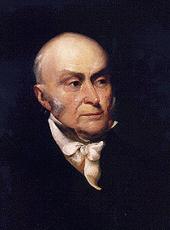DEPARTMENT OF WAR,
The Secretary of War, by direction of the President of the United States, announces to the Army the painful intelligence of the decease (the 24th of February) of Major-General Brown.
To say that he was one of the men who have rendered most important services to his country would fall far short of the tribute due to his character. Uniting with the most unaffected simplicity the highest degree of personal valor and of intellectual energy, he stands preeminent before the world and for after ages in that band of heroic spirits who upon the ocean and the land formed and sustained during the second war with Great Britain the martial reputation of their country. To this high and honorable purpose General Brown may be truly said to have sacrificed his life, for the disease which abridged his days and has terminated his career at a period scarcely beyond the meridian of manhood undoubtedly originated in the hardships of his campaigns on the Canada frontier, and in that glorious wound which, though desperate, could not remove him from the field of battle till it was won.
Quick to perceive, sagacious to anticipate, prompt to decide, and daring in execution, he was born with the qualities which constitute a great commander. His military coup d'oceil , his intuitive penetration, his knowledge of men and his capacity to control them were known to all his companions in arms, and commanded their respect; while the gentleness of his disposition, the courtesy of his deportment, his scrupulous regard to their rights, his constant attention to their wants, and his affectionate attachment to their persons universally won their hearts and bound them to him as a father.
Calm and collected in the presence of the enemy, he was withal tender of human life; in the hour of battle more sparing of the blood of the soldier than his own. In the hour of victory the vanquished enemy found in him a humane and compassionate friend. Not one drop of blood shed in wantonness or cruelty sullies the purity of his fame. Defeat he was never called to endure, but in the crisis of difficulty and danger he displayed untiring patience and fortitude not to be overcome.
Such was the great and accomplished captain whose loss the Army has now, in common with their fellow-citizens of all classes, to deplore. While indulging the kindly impulses of nature and yielding the tribute of a tear upon his grave, let it not be permitted to close upon his bright example as it must upon his mortal remains. Let him be more nobly sepulchered in the hearts of his fellow-soldiers, and his imperishable monument be found in their endeavors to emulate his virtues.
The officers of the Army will wear the badge of mourning for six months on the left arm and hilt of the sword. Guns will be fired at each military post at intervals of thirty minutes from the rising to the setting of the sun on the day succeeding the arrival of this order, during which the National flag will be suspended at half-mast.
JAMES BARBOUR.
John Quincy Adams, Executive Order Online by Gerhard Peters and John T. Woolley, The American Presidency Project https://www.presidency.ucsb.edu/node/207023

